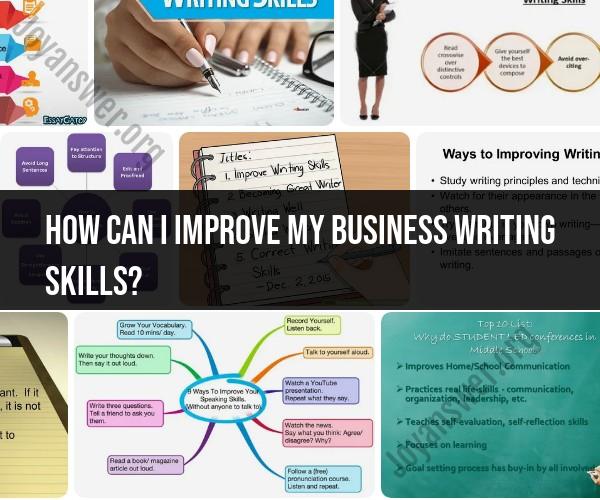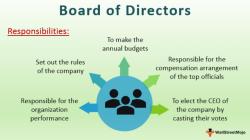How can I improve my business writing skills?
Improving your business writing skills is essential for effective communication in a professional setting. Clear and concise communication helps convey ideas, build relationships, and achieve your goals. Here are some tips and techniques to enhance your business writing skills:
1. Understand Your Audience:Tailor your writing to your audience's needs, preferences, and level of expertise. Consider their background, interests, and expectations to ensure your message resonates with them.
2. Define Your Purpose:Clarify the purpose of your communication. Are you conveying information, making a request, or persuading? A clear purpose helps structure your writing effectively.
3. Use Clear and Concise Language:Avoid jargon, overly technical terms, and convoluted sentences. Use simple, straightforward language that is easily understandable by a wide audience.
4. Organize Your Content:Structure your content logically. Use headings, subheadings, bullet points, and numbered lists to break up the text and make it easier to read and comprehend.
5. Start with a Strong Opening:Capture your reader's attention with a concise and engaging introduction. Clearly state the main point of your message to set the tone for the rest of the communication.
6. Maintain a Professional Tone:Adopt a formal and respectful tone in your business writing. Be courteous, diplomatic, and avoid any language that could be interpreted as offensive.
7. Proofread and Edit:Thoroughly review your writing for grammatical errors, typos, and inconsistencies. Edit for clarity, coherence, and proper punctuation.
8. Use Active Voice:Use the active voice to make your writing more direct and dynamic. Active voice clearly states the subject performing the action, which enhances clarity.
9. Be Succinct:Avoid unnecessary fluff and redundancy. Get to the point quickly while providing all essential information.
10. Provide Context:Give context to your communication, especially if the reader might not have all the information they need. This helps prevent misunderstandings.
11. Personalize When Appropriate:Address the recipient by name and personalize your communication to establish a connection. However, be cautious not to be overly familiar in a professional setting.
12. Use Visual Aids Wisely:If appropriate, include charts, graphs, or visuals to enhance your message. Visual aids can help clarify complex information.
13. Be Mindful of Email Etiquette:When writing emails, follow proper email etiquette. Use a clear subject line, keep the message concise, and avoid using all caps or excessive formatting.
14. Seek Feedback:Share your writing with colleagues, mentors, or peers for feedback. Constructive criticism can help you identify areas for improvement.
15. Read Widely:Expose yourself to well-written business documents, articles, and reports. This can help you develop a sense of effective business writing style and structure.
16. Practice Regularly:Practice is key to improving any skill. Set aside time to write regularly, whether it's emails, reports, or proposals. The more you write, the more you'll refine your skills.
Remember that improving your business writing skills takes time and consistent effort. Over time, you'll become more comfortable and proficient in communicating effectively in a professional context.












